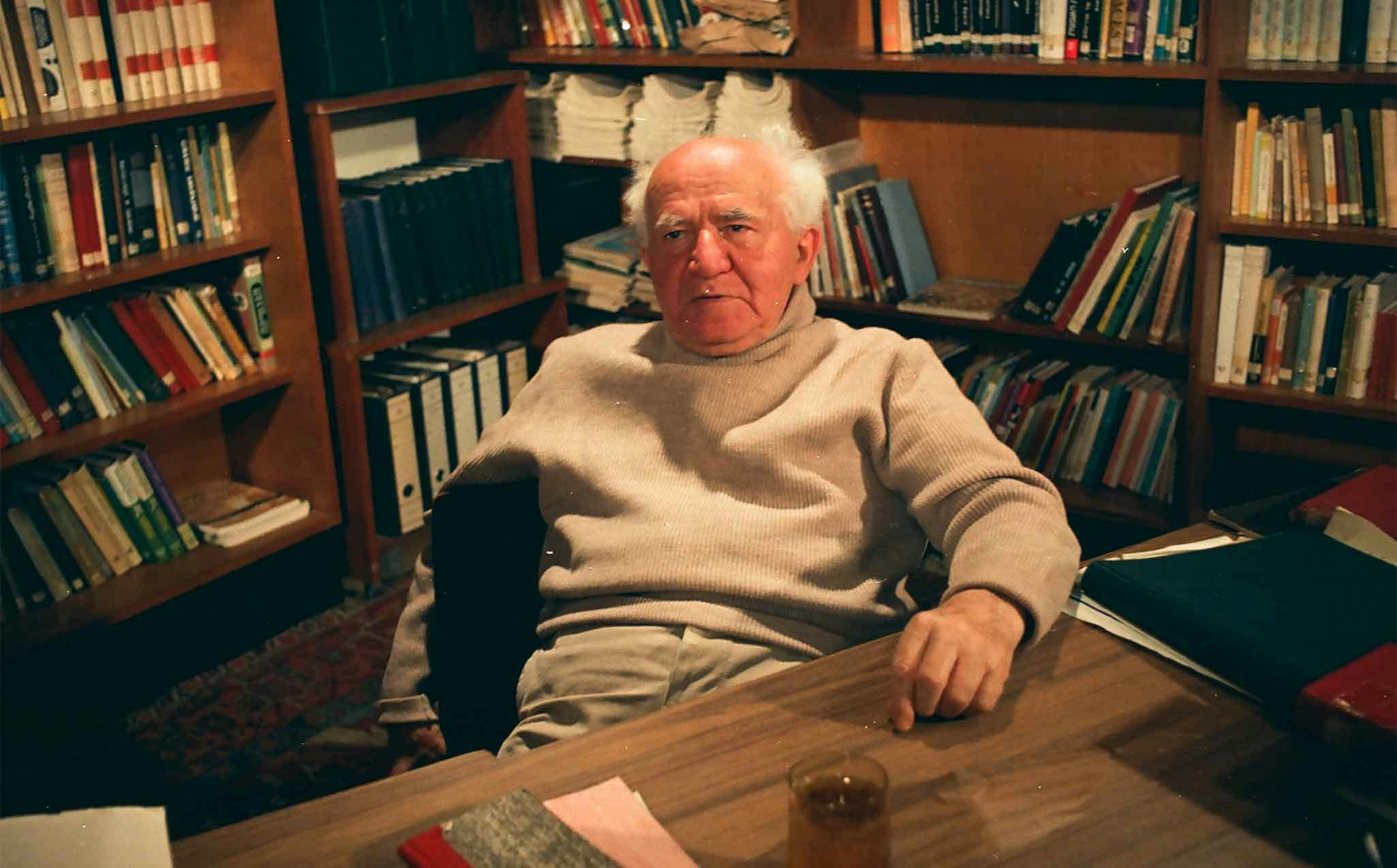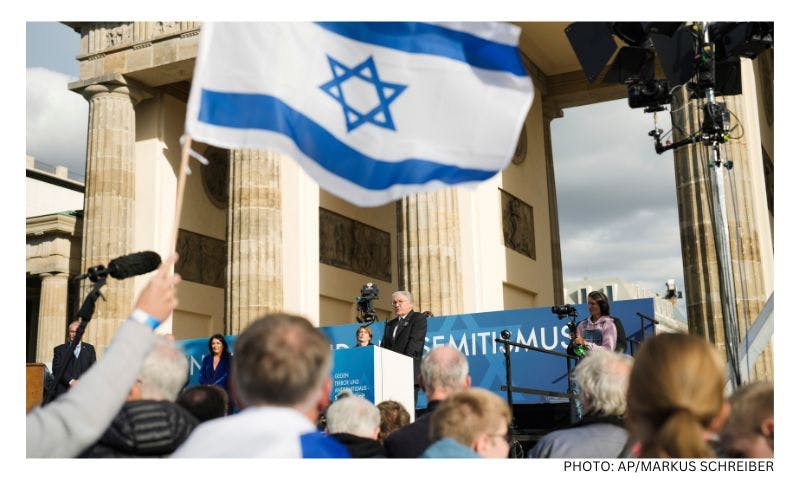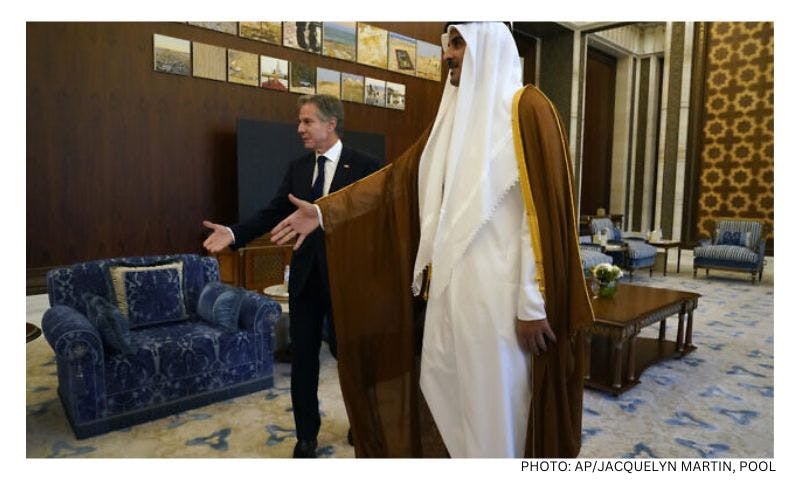Published: 17 October 2017
Last updated: 4 March 2024
Mozer, who had long been intrigued by the Labor Party hero, stumbled across the interviews with co-producer Yael Perlov quite by chance three years ago, while searching for another lost work, a dramatised biography of the Prime Minister by Perlov's late father David (who won an Israel prize for his documentaries). Abandoned on a shelf at the Steven Spielberg Jewish Film Archive at Jerusalem's Hebrew University 40 years ago, the interviews had originally been intended as research material for the film, and were soon forgotten about.
Ben-Gurion did not speak in short, snappy, sound bites - one part about Am Segula, (which refers to Israel’s responsibility to fulfil its purpose as the chosen people), for example, lasts a good 25 minutes - so even when editing six hours down to one, Mozer doesn't think he left anything "crucial" out. In fact, this remains the Old Man's longest filmed interview by a good 30 minutes, with Mozer and Perlov also trawling through over 70 archives worldwide "to gather every piece of Ben-Gurion on camera".
Footage includes the nimble octogenarian performing his famous headstands, sitting beside Ray Charles at the piano, and even kitted out in a longyi on a state visit to Burma in 1961. Later this year, however, in the run-up to Israel's 70th anniversary, longer segments of the interview will be uploaded according to various themes onto the documentary's website.
The documentary also includes an excerpt from a BBC interview of Ben-Gurion and his wife Paula, a Russian Jew by birth whose no-nonsense streak (presumably what got her through all 51 years of marriage) shines through. "You cannot live without politics", Paula, decked out stylishly in white sunglasses, a black cardigan and blouse, tells her husband, looking at the interviewer head-on.
"Yes, I can," Ben-Gurion contradicts her.
"No, you can't," she rejoins, still not looking at him. Remarkably, Yariv tells me, this is also the only existing recording of Paula's voice.
[gallery columns="1" size="large" ids="14795"]
The six-hour interviews were filmed in 1968, four months after Paula's death. At one point, interviewer Clinton Bailey, an American who made Aliyah and later became an expert of Bedouin culture, reflects: "Yet you go on working, you're not a crushed man."
"A crushed man?", repeats Ben-Gurion. "No. Why should I be crushed?" On the big screen, Mozer assures me, you can see the tears in the hardened kibbuztnik's eyes, his hand raised to try and shield his face. As Ben-Gurion concedes, he is “a half-man” now.
Bailey asks everything from whether the Allies could have saved more Jews, to the highly unpopular decision to accept war reparations from West Germany. Other controversial topics - the Nakba, for example- remain conspicuously absent.
What, in Mozer's view, accounts for that?
"I think it's a combination of a number of things", he says. "Bailey is a left-wing supporter, he knew of the Palestinian problem, but from listening to him in the interview I don't think it was something that he felt comfortable asking Ben-Gurion in a critical way... The hard issues which we see with the eyes of today... it wasn't something to speak of back then in '68. Even the question of the [occupied] territories was a very controversial question".
Still, Mozer is convinced that the Occupation weighed heavily on Ben-Gurion's mind during the interview. This, he argues, is evident when Ben-Gurion expands upon the meaning of Am Segula, and affirms that Israel has "not yet" reached a point where the Jewish people are, as instructed by their prophets, "just, truthful, helping all those who need help, and lov[ing] other men like yourself".
When he talks about leadership, and about political decisions, and the way he thinks and the way he behaves... You can't stop thinking about our leaders today,
Or when he recites the following lines from the Bible, "If a stranger will live among you, he should be to you like a citizen and you should love him yourself because you were strangers in Egypt", and concludes, "So it doesn't mean only Jews".
"In the eyes of history- of that context- he was being highly explicit," states Mozer, for whom the documentary's most important scene is footage of Ben-Gurion as he takes the stage at the Knesset on the occasion of his 85th birthday, two years before his death. "Our historic yearning has been for a new society built on liberty, equality, tolerance mutual, aid and love of man, a society without exploitation, discrimination, slavery or tyranny. We cannot say that the nation in Israel is already an Am Segula", his voice rings out.
"The speech is like a prophet who is talking to his people and saying, 'Be aware, you are going in the wrong direction', 'Be aware of your moral values as a society'," says Mozer. Moments from the original recordings that "contradict or challenge our reality today" were chosen deliberately. "This became, I would say, not the goal of the film, but the motive of doing such a film. It's not a film about history, it's not a nostalgic film, it's a film relevant to Israel today."
[gallery columns="1" size="large" ids="14799"]
In September the film, which premiered at the Jerusalem Film Festival in July last year, won Best Documentary at the Ophir Awards, Israel's equivalent of the Oscars. It has garnered unusual success for a documentary, with 50,000 people in Israel watching it at the cinema alone. The Labor Party and far-right Jewish Home Party have enjoyed private screenings, and head of the Arab Joint List, Ayman Odeh, has also expressed an interest in seeing it.
Israel's Chief of Staff even gathered the entire Israeli High Command for a screening. "Their feeling is... that Ben-Gurion is coming up from the living and speaking about our lives today", says Mozer.
Indeed, at a time when many despair that politics is motivated only by self-interest, Ben-Gurion seems to speak here from a bygone, loftier age when politicians appeared more wrapped up in matters of state, than themselves.
"When he talks about leadership, and about political decisions, and the way he thinks and the way he behaves... You can't stop thinking about our leaders today, not only in Israel, but in general. You think of Trump, you think of others," Mozer explains.
At no point is this conveyed more powerfully than when Ben-Gurion opines on the prophet Jeremiah: "He understood politics more than the kings. But he was unpopular. A statesman who is not considering the things which ought to be done, whether it is popular or not, then he is a dangerous man, if he looks only to be popular". Jeremiah was quite simply, a "great statesman". Much like Ben-Gurion himself, perhaps.
Yariv Mozer has been brought to Australia by The Jewish Independent for this year's Jewish International Film Festival, which will hold a Q &A with him in Sydney on October 29, Melbourne on October 30, and in Canberra on November 2. For details of screenings, go to jiff.com.au




